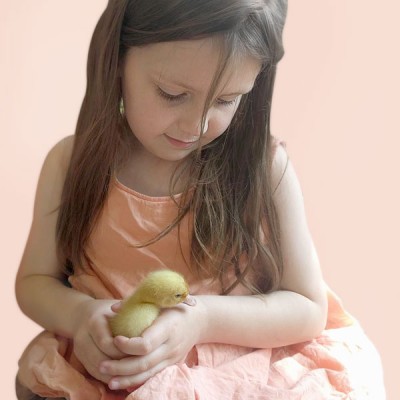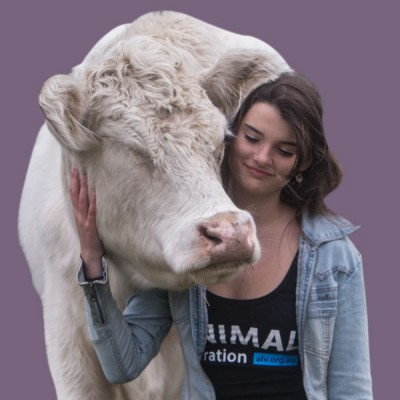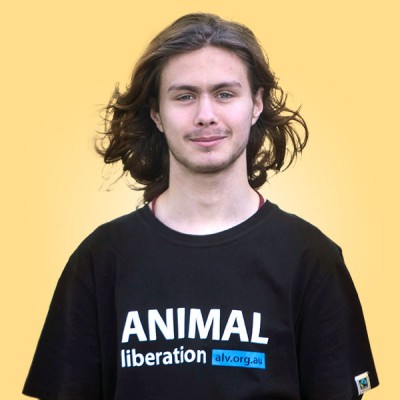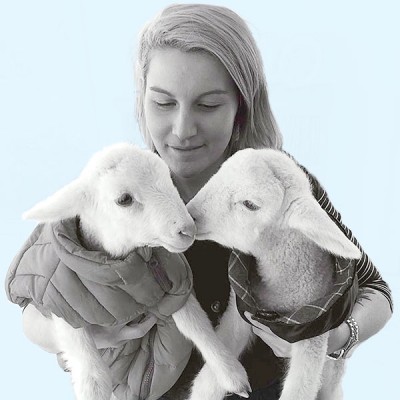Ash Nayate
Vegan mum and neuropsychologist Ash Nayate ponders the link between veganism and emotional intelligence in children.
Vegan mum and neuropsychologist Ash Nayate ponders the link between veganism and emotional intelligence in children.
As a vegan mum and a neuropsychologist, I’ve often wondered if there is a link between veganism and intelligence. And no, I’m not talking about “IQ” or academic performance or even test scores. I’m referring to perhaps the most important aspect of intelligence – emotional intelligence.
Emotionally intelligent kids are empathetic, socially astute, and resilient. They are less likely to engage in bullying, whether as an instigator or recipient. They persevere with tasks even in the face of setbacks. They handle emotions gracefully and navigate relationships with integrity.
The link between veganism and emotional intelligence has not been empirically studied, however, what we do know from the literature is that emotional intelligence can be learned. It’s a skill, like driving. And veganism is an outstanding vehicle for teaching emotional intelligence, because it encompasses many crucial attributes such as empathy, social justice, equality, and compassion.
Veganism is a scary word. It was to me, almost a decade ago. But much like Neo in the movie “The Matrix”, I wanted to wake up. And as almost every vegan will testify, my only regret is not going vegan sooner.
In my 15-odd years of working with kids and families, it’s apparent that parents inadvertently perpetuate the many injustices and inequalities of the world, simply because teaching kids differently would mean that we have to change, as well. And for many, veganism seems like too great of a sacrifice.
Let’s be honest, though. Even if veganism was a sacrifice (which is isn’t, considering that there are literally thousands of plant foods available and these days literally every meal can be veganised), we are used to making sacrifices for our kids, if it’s in their best interests.
We relinquish alcohol while we’re pregnant.
We forgo sleep while they’re newborns.
We feel like we sacrifice our sanity during the toddler and teen years.
We already know how to prioritize our kids’ needs.
Veganism isn’t a way of eating. What starts out as a dietary change becomes so much more. For myself and many of my fellow vegans, it became a lifestyle overhaul.
Veganism means that we recognize the value of all beings, rather than prioritizing our importance over everyone and everything else. More importantly, veganism is a way of living that promotes respect, compassion, kindness, justice, empathy, equality, and healthy self esteem.
Even if I were to disregard the ethical, environmental, and health benefits of veganism, as a neuropsychologist, I cannot ignore the emotional benefits. When we adopt the principles of veganism, our kids will adopt them too.
Teaching our kids to be emotionally intelligent is one of the greatest gifts we can bestow upon them. And veganism is one of the easiest (and most delicious) ways of achieving this.

"If you eat animals you should stop, because you know you can be smarter than that."- 7 year old vegan activist

Passionate vegan dad of two amazing little girls, co-founder of Little Nest Refuge.

It’s not a ‘personal preference’ or a ‘life style’ – it’s about equality.

Vegan Born Teenager, Activist, Dancer and Photographer

Vegan mother, boxer and kickboxer, and drummer in the hardcore punk band 'Straightjacket Nations'.

Founder of Little Nest Refuge, mother of two vegan children, Animal Activist and Rescuer.
Leave a Comment